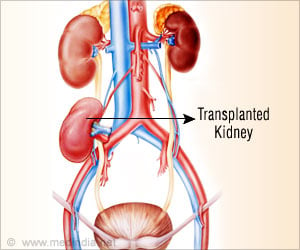
‘Pituitary Adenylate Cyclase Activating Polypeptide (PACAP), plays a role in both anxiety disorder and chronic pain conditions, and found blocking its action in the nervous system may be a better way to treat patients than the current standard.
’
Tweet it Now
Using models for chronic pain and anxiety, as well as models that can trace PACAP neurocircuits, the team members were able to observe where the stress and chronic pain pathways intersected. "Chronic pain and anxiety-related disorders frequently go hand-in-hand," says senior author Victor May, Ph.D., professor of neurological sciences at the University of Vermont (UVM). In a 2011 study, he and members of the research team found that PACAP was highly expressed in women exhibiting PTSD symptoms.
While May and his colleagues saw an increase in anxiety-related behaviors in models of chronic pain, the anxious behavior and pain hypersensitivity were significantly reduced when a PACAP receptor antagonist - designed to block the response - was applied.
"By targeting this regulator and pathway, we have opportunities to block both chronic pain and anxiety disorders," says May, whose next step is to work with University of Vermont chemistry colleagues to develop small molecule compounds that can antagonize PACAP actions.
"This would be a completely different approach to using benzodiazepine and opioids - it's another tool in the arsenal to battle chronic pain and stress-related behavioral disorders."
Advertisement
Source-Eurekalert















